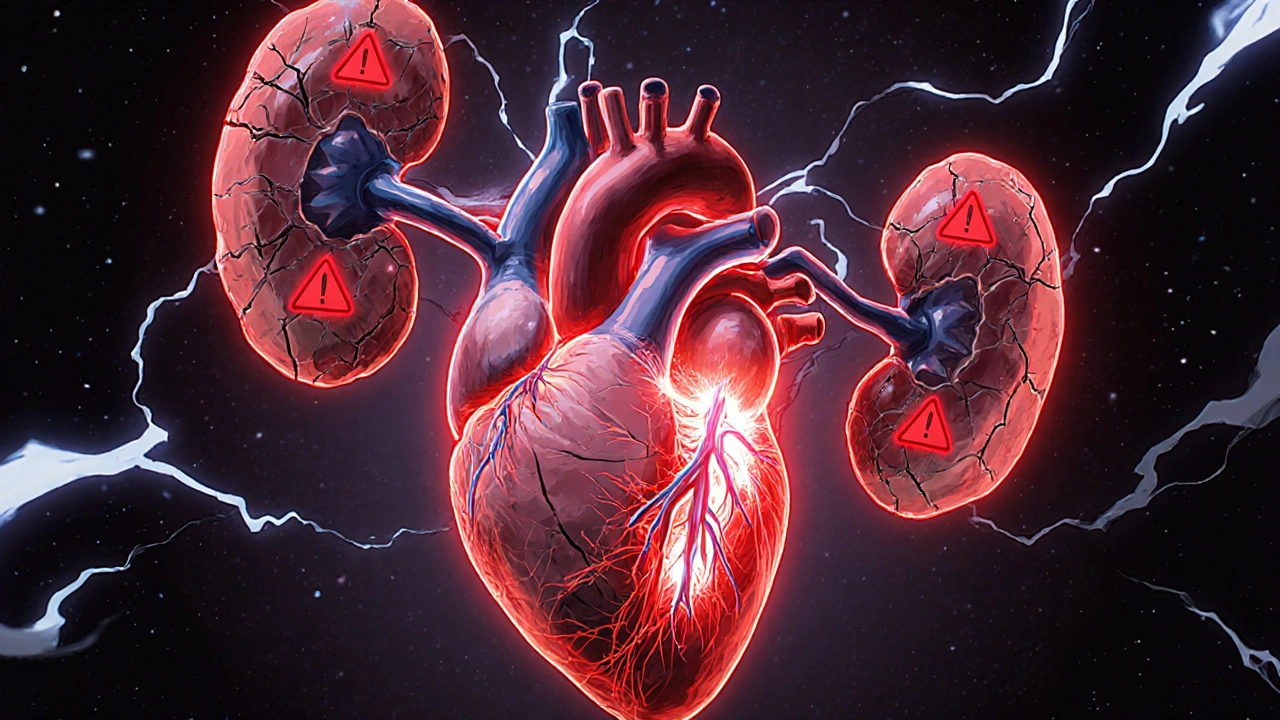Phosphate Deficiency: Causes, Symptoms, and What You Need to Know
When your body doesn’t get enough phosphate, a vital mineral that helps form bones, store energy, and carry signals in cells. Also known as hypophosphatemia, it’s not just about weak bones—it can mess with your heart, muscles, and even how your brain works. Most people think of calcium when it comes to bone health, but phosphate works hand-in-hand with it. Without enough phosphate, your body can’t repair tissue, make ATP (your cells’ energy currency), or even move properly.
Phosphate deficiency doesn’t happen out of nowhere. It often shows up after long-term use of antacids, severe alcohol withdrawal, or when someone’s been on total parenteral nutrition without proper mineral balance. Diabetics recovering from ketoacidosis, people with malabsorption disorders like celiac disease, and those with eating disorders are at higher risk. Even intense exercise or sudden refeeding after starvation can drain phosphate fast. It’s not rare—it’s just overlooked because symptoms are vague. Think tired all the time, muscle weakness, bone pain, or numbness in your hands and feet. In serious cases, it can cause confusion, seizures, or breathing trouble.
Related to this are electrolyte imbalance, a condition where minerals like potassium, sodium, and phosphate fall out of normal range, and mineral deficiency, a broader category that includes low levels of iron, zinc, magnesium, and phosphate. These don’t exist in isolation. A drop in phosphate often means other systems are under stress. Doctors check phosphate levels with a simple blood test, but many patients go undiagnosed because the symptoms mimic other issues—like chronic fatigue or depression.
What you’ll find in the articles below isn’t just theory. These are real cases, real treatments, and real warnings from people who’ve been there. You’ll see how phosphate ties into liver health, how it affects medication safety, and why some drugs—like those used for acid reflux or diabetes—can quietly drain your phosphate stores. There’s no fluff. Just clear, practical info on what to watch for, when to ask for a test, and how to fix it without jumping to supplements that might do more harm than good.
Electrolyte Imbalances: Managing Potassium, Phosphate, and Magnesium in Kidney Health
Electrolyte imbalances in potassium, phosphate, and magnesium are common in kidney disease and can be life-threatening. Learn how to recognize, treat, and prevent these critical imbalances with evidence-based protocols.

